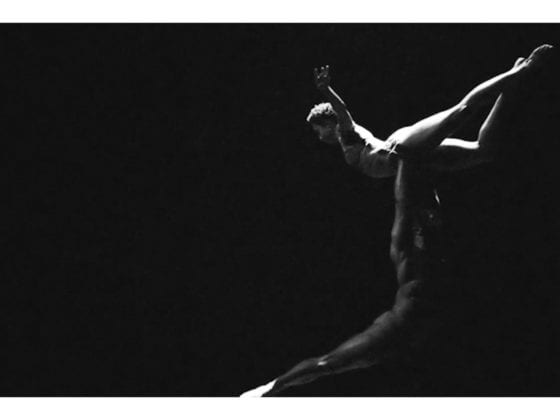There are few things more satisfying than a good belly laugh. I’m talking about the deep sort of laugh that takes over your entire body. The type that forces your head to fall back, tears to stream from your eyes, while stealing your breath and rendering you incoherent; the type of laugh that physically hurts, and leaves you aching afterward. As painful as it sounds, there are few things more satisfying.
The only thing that I’ve found to be more delightful than one such laugh is being the one who brings about this type of laugh. I discovered this pleasure as a child and have since seized every opportunity to get a laugh from everyone within earshot. But as with any endeavor we take on in childhood, I had a lot to learn about the boundaries in humor.
One memorable learning opportunity came about at the baseball fields when I was 12. I had two girlfriends with me who had tagged along to watch my brother’s game since several of our friends played on his team. One friend in particular was named Chase, and if my tween diary entry is correct, this Chase had broken up with my friend shortly before. Naturally, she was devastated.

So, in a lighthearted attempt to cheer her up, I casually drifted out the phrase, “Chase, Chase monkey face.” It more than accomplished my goal. In between bursts of laugher, my friends reiterated how fitting the nickname was since Chase had not quite grown into his ears. And so we giggled our way from the concession stand back to the bleachers where my mother asked, with a smile, what was so funny. My friends shared with her my genius nickname, and I felt buzzed with accomplishment. This feeling vanished when I saw my mother’s smile disappear and she said she wanted to talk to me privately.
Behind the bleachers I defended myself, saying that it was just a joke and that she was overreacting (in the eloquent tongues of a 12-year-old, mind you). She informed me that some things were worth an overreaction and this was one of them, because being mean is never funny.
Being mean is never funny.
We were so taken with ourselves that we failed to consider how Chase might feel about our joke. Beneath the surface, my harmless fun was at his expense. While we felt the pleasant pain that comes with a belly laugh, he would feel the pain that comes from being mocked. We would both hurt afterward, but in very different ways and for very different reasons. Being mean is never funny.
Those words continue to haunt me. And while I want to agree with them in full, I find myself second-guessing more often than accepting them. “Mean” is such a strong word, after all. Making fun, on the other hand, is just that, fun! And what’s the harm in a little fun, anyway?
When we take inventory of what our culture finds humorous, it seems that the majority of our laughs come at someone else’s expense. We live in an exploitative culture of humor. It preys on people’s mistakes and spotlights the socially taboo. We watch these on replay, make memes and graphic tees about them, and even morph them into auto-tuned songs. We chuckle under our breath at innuendos and curt jokes. We cackle at misspelled words on Twitter and howl at the interesting characters we see at Wal-Mart. We snap pictures of unsuspecting strangers and invite our friends to laugh with us. In essence, we have made sport of objectifying people for humor.
We live in an exploitative culture of humor. It preys on people’s mistakes and spotlights the socially taboo.
And I’m both a participant and a consumer in this sport. I laugh until it hurts without giving much thought of who or how it might be hurting.
We have been conditioned to laugh not with, but at others. And when we aren’t objectifying others, we’re objectifying ourselves. In attempt to be kinder, I’ve overcompensated by making fun of myself, concluding that it’s fine if I’m the butt of my own jokes. But self-deprecation is no better at all, because making a joke at our own expense invites others to do the same, reinforcing that self-degradation is funny.
So where does this leave us? Are we forced to choose between being funny and being kind? Of course not! But we must ask ourselves how can we advocate for refining humor, so we don’t continue falling into the ditches of objectifying others and self-deprecation for humor’s sake.
It’s challenging. Let’s start by laughing with people, not at people — inviting others to laugh deeply about situations and circumstances, and things that are silly, witty, adorable and clever. Let’s reject the humor that is cheap and cliché, crass and mean. Instead, let’s refine humor by being creative, kind, and hilarious. It is a challenge, but a challenge worth accepting.
Does this ring true for you? Do you think society’s favored humor comes too much at the expense of others?
Images via Camila Gutierrez












5 comments
Our culture uses humor to mask meaness and devisiveness, and then gives us a way to actually laugh and revel in our cleverness and superiority. When humor separates instead of bringing others together, it is always harmful and divisive.
This is a great way of summarizing how to “stay funny” in a world where one side wants to refine humor and the other side believes humor is lost to “political correctness.” The simplicity blows my mind–make jokes about relate-able situations, but not directly at /people/. Or, as you put it, “Let’s start by laughing with people, not at people — inviting others to laugh deeply about situations and circumstances, and things that are silly, witty, adorable and clever.” Loved this article!
I absolutely love this post! I have made jokes and observations like you described and felt awful in the immediate aftermath. One of the principles I set for myself at the start of 2016 to focus on was to be kind. The fact that you successfully made the case for how we can be both funny and kind makes me so happy and re-inspired to pursue only the most enduring and positive humor. Thank you!
Thank you for this article! I agree! As a culture we get too many laughs at the expense of others. It’s cheap, lazy humor and far too easy to fall into the trap of using it and enjoying it. Whatever happened to cleverness and intelligence in humor? Certain tv shows, decades later, are still funny because they were intelligent and still speak to the amusing mysteries of life all these years later. And that’s the best kind of humor. The “it’s funny because it’s true and EVERYONE relates to that!” humor. It doesn’t find a laugh at the expense of others, it’s not laughing AT anyone, we ALL laugh because we ALL experience it. Great article!!
reading this is actually making me cry because i can relate to it very much. i have been on the receiving end for a long time, growing up in australia as an immigrant with a strong asian accent, along with dysfunctional upbringing, a timid introvert personality, plus an unfashionable appearance and tiny wardrobe led me to be the subject of many jokes. outwardly i masked my fear with smiles, at times, even pretended i didn’t speak english at all, afterwards, i would hide away and cry, even weep. i simply struggled to fit in and did not see the point of my existence.
by grace i was rescued, and I solidered on, i got through all those years and have since been blessed with wonderful adopted family and a beautiful husband.
and the sad thing is, as an adult, today, living in the current culture as you have insightfully described, i still don’t fit in. years on, this time around, i am on the other side of the coin, whereby, i simply struggle to chime in with the seen cool and popular people in making jokes at the expense of others. and because of that, I have even been told that i’m too serious, uncool, that i should loosen up as its all just for fun and jokes.
thank you for sharing your thoughts, your article is definitely timely, a wonderful piece of wisdom that is a must read. it is not easy living in an age when oversharing is encouraged and social media popularity becomes one of the judging factors of a person’s worth.